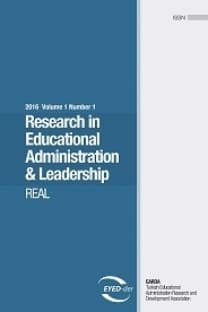Misconceptions in Phenomenological Research in Educational Administration: An Analysis Based on Theses
The present study intends to determine the ways followed and misconceptions held in the studies of phenomenological research design by analysing the theses in the field of educational administration. By using the database of the Turkish Council of Higher Education Thesis Center, forty master's and ten doctoral theses conducted between the years 2010-2017 in the field of education administration were reviewed and analysed methodologically. The results indicated that researchers did not benefit from international literature on phenomenological research, the aims and objectives of the theses were not appropriate for employing phenomenology, the study groups of the theses were structured in an unfavourable way, the interview questions used to collect data were not directed to the essence of experience, appropriate methods for the process of data analysis process were conducted, and the interpretation of the findings included problematic points. These misconceptions held in phenomenological research were mostly due to not dominating the philosophical underpinnings of phenomenology. Therefore, the researchers planning to conduct their research under the skin of phenomenology need to read enough about and to gain insights into the phenomenological research design before the beginning of their studies.
___
- Aydoğdu, H. (2018). Fenomenoloji ve bilimler. Atatürk Üniversitesi Sosyal Bilimler Enstitüsü Dergisi, 22(2), 1313-1344. Baird, J. R. (1999). A Phenomenological exploration of teachers’ views of science teaching. Teachers and Teaching, 5(1), 75-94 Bakanay, D. Ç., & Çakır, M. (2016). Phenomenology and its reflections on science education research. International Online Journal of Educational Sciences, 8(4), 161-177. Best, J. W. & Kahn, J. V. (2006). Research in education. Boston, MA: Pearson Education Inc. Blase, J. J. (1987). Dimensions of ineffective school leadership: the teachers’ perspective. Journal of Educational Administration, 25(2), 193-213.
- Yayın Aralığı: Yılda 4 Sayı
- Yayıncı: Dokuz Eylül Üniversitesi
